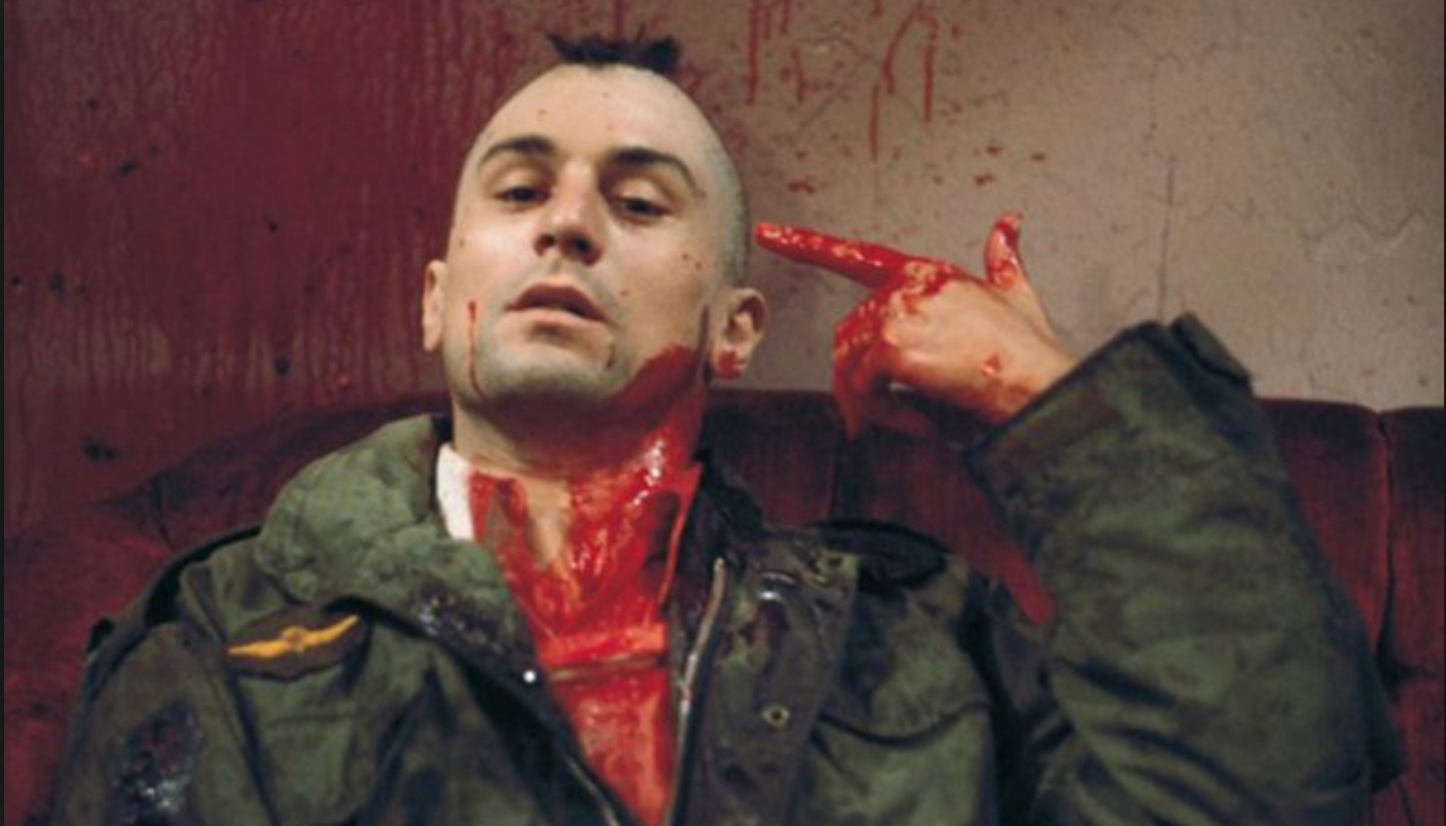Three years ago I repeated my long-held Taxi Driver perception that Travis Bickle died on the couch after that East Village shoot-out. Everything that happens in the epilogue — the newspaper articles praising him for having murdered a couple of pimps, Iris’s parents writing to thank him for saving their daughter, Cybil Shephard looking at him dreamily after he drops her off at her Grammercy Park apartment — is Travis’s dying fantasy. And then in the last shot he’s driving along and looks into the rearview mirror with a slight look of alarm, apparently sensing that something’s wrong and…zhhhoop! Bickle disappears.
It seems obvious as hell, but no one ever agreed with me. Until a week ago, that is.
From Lindsay Zoladz‘s “God’s Lonely Men: Taxi Driver in the Age of the Incels,” posted on TheRinger on 7.30.18:
“Last week, immediately after watching Martin Scorsese’s 1976 fever dream for the first time in more than a decade, I scrambled for my phone to confirm that I was not the only person who had completely misremembered the ending of the movie: I could have sworn Travis Bickle died.
“The last image I remembered from Taxi Driver was that famous, otherworldly slow-motion shot from above — a ‘priest’s eye view,’ Scorsese has called it — cataloging the carnage of Bickle’s killing spree as the police arrive. What I’d forgotten was the movie’s surreal coda, in which Bickle not only survives but becomes a vigilante hero in the newspapers, receives a letter from 12-year-old Iris’s parents thanking Bickle for saving their daughter from a life of prostitution, and, perhaps least plausibly, gets another chance with his WASP goddess, Betsy, even though she knows he has just murdered three people and the last time she saw him he showed up at her workplace to harass her, threaten her, and tell her she was scum just like everybody else. With all due respect to Paul Schrader, I liked my ending better. It had a certain closure.”
Wells to Zoladz: Schrader and Scorsese’s ending is your own. They’re obviously telling us that we’re watching Bickle’s bullshit fantasy about what happened after the Lower East Side shoot-out.
Back to Zoladz: “My Googling confirmed that some people do believe that Taxi Driver’s epilogue is a dream sequence — a kind of death dream, as the camera mimics Bickle’s soul leaving his body. Roger Ebert, in his 2004 reconsideration of the film, took up the question and came down on the side of artistic ambiguity: ‘Is this a fantasy scene? Did Travis survive the shoot-out? Are we experiencing his dying thoughts? Can the sequence be accepted as literally true? I am not sure there can be an answer to these questions. The end sequence plays like music, not drama: It completes the story on an emotional, not a literal, level.'”

